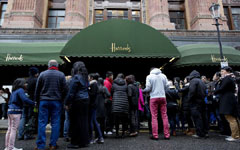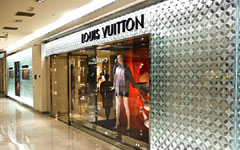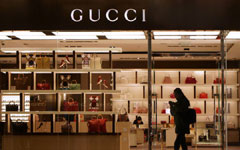But on Thursday, French retailer Hermes reported record fourth-quarter sales in China, and CEO Alex Dumas dismissed the effect of the corruption crackdown on its sales.
"We have not been affected by that movement," he said in reporting that sales in the Chinese mainland rose 19 percent last year at constant exchange rates and 17 percent in the fourth quarter alone.
|
 |
|
 |
|
 |
Shirley Young, president of Shirley Young Associates, and governor and ex-chairman of the Committee of 100, said the government's austerity program will cut into luxury purchases in the short term.
"You'll have the whole trend of the country when 300 million people come to the cities, like a whole United States moving in, which will happen in five years or so," she said. "You'll have a much bigger urban population that has much more access to purchasing."
"It's part of human aspiration as they rise up in society that they will look beyond basic needs, which is luxury," she added. "The long-term trend is positive."
"The (luxury) market is like the stock market that rises and falls," said Furman. "In a down market, the realtors, the shopping malls and the government would want to encourage brands to come in by offering better deals. From a business standpoint, a new brand can grow as the market comes back."
More exposure
Sun Baohong, the dean's distinguished chair professor of marketing at Cheung Kong Graduate School of Business in Beijing, said new luxury brands are building flagship stores in Shanghai and Beijing.
"The bigger, the more flamboyant and the more luxurious they look, the better," said Sun. "It showcases the brand's status."
In early January, L'Oreal decided to end sales of its Garnier-branded products in China, a week after New York-based competitor Revlon pulled out of the Chinese market.
"Revlon's exit is due to their marketing failure in the mid-priced cosmetics segment," said Ann Lee, author of What the US Can Learn from China and a senior fellow at British think tank Demos. "The Chinese consumer market is highly competitive, and Revlon just didn't have the right strategy, as opposed to the Chinese being anti-foreign."
